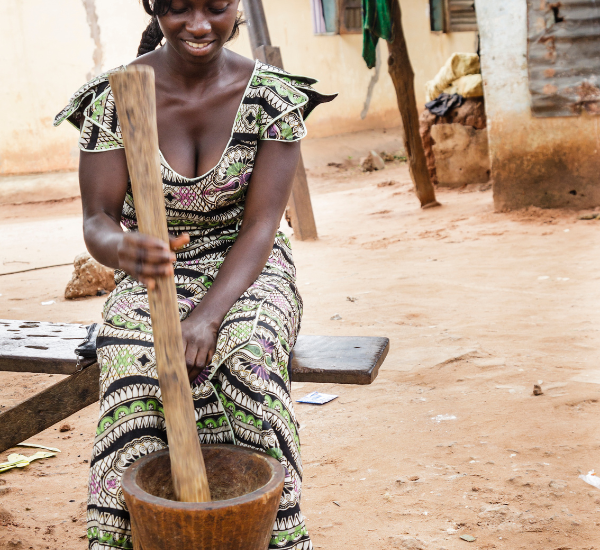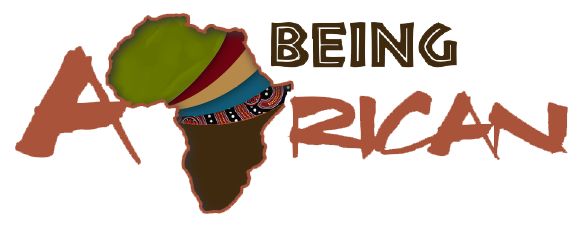
Manners & Protocols in Kikuyu Culture
Manners & Protocols in Kikuyu Culture
The Kikuyu are pleasant and hardworking people. They value people who are friendly and social and can tell tasteful jokes. They are also susceptible to insults, and one must speak very carefully. The Kikuyu greatly values his place in society and takes great care not to offend his neighbors, relatives, and acquaintances.
Manners that are observed include:
- One must always greet visitors or anybody they meet on the road. It is considered atrocious manners and a show of arrogance and pride for one not to greet others.
- Visitors are always offered food, tea, or fruits. One is not supposed to ask visitors if they are hungry. If they have arrived from a long journey, they are assumed to be hungry and offered food. If they have stopped by for a short visit in the evening, they can be provided fruits or tea.
- Girls are always expected to keep busy. It is considered inappropriate to sit unoccupied during the day. Traditionally, girls kept themselves busy by weaving the kiondo, a traditional handbag, when they were not busy with other chores. Nowadays they read their books, clean or prepare vegetables and cereals for cooking.
- Girls are expected to dress modestly in front of their fathers and other male relatives. The Kikuyu are particularly sensitive to the exposure of thighs. The chest should also be well covered. When scantily dressed or indisposed, they cover themselves with a leso, a type of wrapper.
- Kikuyu parents of different sex do not show physical affection for their children. Girls do not hug and kiss their fathers. Boys do not hug and kiss their mothers. They use words and a vigorous handshake instead. Kikuyu fathers also don’t enter their daughter’s bedroom.
- If living with a relative, one is expected to return home at a reasonable hour, usually six or seven in the evening. You are also expected to participate in the household chores and maintain cleanliness in your room. When leaving for good, you are expected to give a vote of thanks and give your host a gift.
- Respect for elders is considered very important. Children do not sit with elders. They greet them and then go away. They also help them with their luggage if they meet on the road. A child is expected to stand aside to let an elder pass.
- It is considered impolite to go visiting with empty hands. Visitors are expected to bring a little shopping, including flour, sugar, cooking oil, bread, tea leaves, and snacks for the children. The host is expected to empty the kiondo and put something in it in return. It is considered impolite to return an empty kiondo.
- During dining, everyone is served. It is considered ill-mannered to serve guests when you are not eating. This is due to the traditional fear of witchcraft. If the food is little, the portions are reduced to ensure everyone gets some. It is also considered impolite to eat alone while other people look on. The Kikuyu value making their guests feel welcome; therefore, requesting a second helping is not regarded as inappropriate.
- Familiarity with elders is discouraged. Adults are referred to by their oldest children’s names. For example nyina wa Wanjiru, mother of Wanjiru and ithe wa Karanja, father of Karanja. If childless, the adult may be called aunt or uncle.
- Sons-in-law cannot stay overnight at their wives’ homes. They can only visit during the day. Mothers-in-law can also not spend a night in a married daughter’s home.
- Traditionally, the Kikuyu blessed their children by spitting on them. This is no longer done except on rare occasions. They cursed by stripping and letting you see their nakedness. Kikuyu elders are therefore cautious to always be modestly dressed around their children. They threaten to undress on the street when displeased with their children or the government.
Protocols that are observed include:
- Traditional Kikuyu society was organized in ranks that included the njama, military strategists, kiama, the elders who were also judges, muranja, married men with more than one child, warriors, women, and children. During social occasions, all these groups sat separately. They also ate different parts of a slaughtered animal. This is no longer the case as the government took over all their functions. The family court arbitrates family disputes. The older generation has come together to form a council of elders that makes political announcements on behalf of the community. Men and women tend to separate themselves into different groups during family gatherings.
- Men still offer mburi cia kiama to the elders of their district, although the church disapproves. These are goats offered to the elders when a man has a circumcised child and wants to become an elder. There are three ranks in the elder hierarchy, and a man pays a goat to climb each rank. The lowest rank is the kamatimo, followed by kiama kia mataathi. The highest rank is the kiama kia maturanguru.
- The head of the family typically has a special seat reserved for him, and his food is served first.
Traditional Kikuyu Greetings.
| Initiator | Recipient | Greeting | Reply |
| Mother | Son | Wakia Awa | Wakia Maitu |
| Mother | Daughter | Wakia Iiya | Wakia Maitu |
| Father | Son | Wanyua Awa | Wanyua Awa |
| Father | Daughter | Wakia Maitu | Wakia Awa |
| Grandmother | Granddaughter | Wakia Cucu | Wakia Cucu |
These greetings are rarely used nowadays, and Kikuyus address each other casually. Popular everyday greetings include:
| Greeting | Reply |
| Ni atia | Ni kwega |
| Wi mwega | Eee ndi mwega |
| Uhoro Waku | Ni mwega/ ti muru |
| Ni nda Kugeithia | Ni nda geithika |
